9: Dialectical Behavioral Therapy
Risk Management and Treatment » Non-pharmacologic Interventions
9: Dialectical Behavioral Therapy
There is insufficient evidence to recommend for or against using dialectical behavioral therapy (DBT) to reduce suicidal ideation and the risk of suicide attempts or suicide.
Strength:
Neither for nor against
Category:
ReviewedNew-replaced
Grades and Definitions
- Strong for
- or "We recommend offering this option …"
- Weak for
- or "We suggest offering this option …"
- No recommendation
- or "There is insufficient evidence …"
- Weak against
- or "We suggest not offering this option …"
- Strong against
- or "We recommend against offering this option …"
Categories and Definitions |
||
|---|---|---|
| Evidence Reviewed* | Recommendation Category* | Definition* |
| Reviewed | New-added | New recommendation following review of the evidence |
| New-replaced | Recommendation from previous CPG that has been carried over to the updated CPG that has been changed following review of the evidence | |
| Not changed | Recommendation from previous CPG that has been carried forward to the updated CPG where the evidence has been reviewed but the recommendation is not changed | |
| Amended | Recommendation from the previous CPG that has been carried forward to the updated CPG where the evidence has been reviewed and a minor amendment has been made | |
| Deleted | Recommendation from the previous CPG that has been removed based on review of the evidence | |
| Not reviewed | Not changed | Recommendation from previous CPG that has been carried forward to the updated CPG, but for which the evidence has not been reviewed |
| Amended | Recommendation from the previous CPG that has been carried forward to the updated CPG where the evidence has not been reviewed and a minor amendment has been made | |
| Deleted | Recommendation from the previous CPG that has been removed because it was deemed out of scope for the updated CPG | |
| *Adapted from the NICE guideline manual (2012): The guidelines manual. London: National Institute for Health and Care Excellence;2012. and Martinez Garcia L, McFarlane E, Barnes S, Sanabria AJ, Alonso-Coello P, Alderson P. Updated recommendations: An assessment of NICE clinical guidelines. Implement Sci. 2014;9:72. | ||
Recommendation Resources
The skills taught in Dialectical Behavior Therapy (DBT) are meant to target the factors maintaining clients' suicidal behaviors and include mindfulness, distress tolerance, emotion regulation and interpersonal effectiveness. The structure of DBT involves individual psychotherapy, group skills training, in-the-moment phone coaching, and a DBT consultation team for therapists.
For more information about what DBT is, please see this behavioraltech.org DBT explanation.
Training and Clinical Resources
This section includes recommended training and/or clinical resources about DBT.
- DBT in the Community
-
 Behavioral Tech Trainings Online Behavioral Tech is a Linehan Institute training company that provides DBT trainings.
Behavioral Tech Trainings Online Behavioral Tech is a Linehan Institute training company that provides DBT trainings. - Behavioral Tech Trainings in Person
- Portland DBT Trainings
- DBT in VA
- The "DBT in VA" links can only be accessed through VA's intranet and at this time cannot be accessed externally. If you are an outside provider who is interested in learning more about DBT in VA, please contact Laura Meyers, Ph.D., ABPP.
- VA DBT Training (VA Intranet access required)
- VA DBT Programs (VA Intranet access required)
Treatment Manuals
This section includes recommended treatment manuals and resources required for DBT including the DBT skills training manual, DBT handouts and worksheets, and a standard DBT diary card.
- Resources Required for Full DBT / DBT Manuals
-
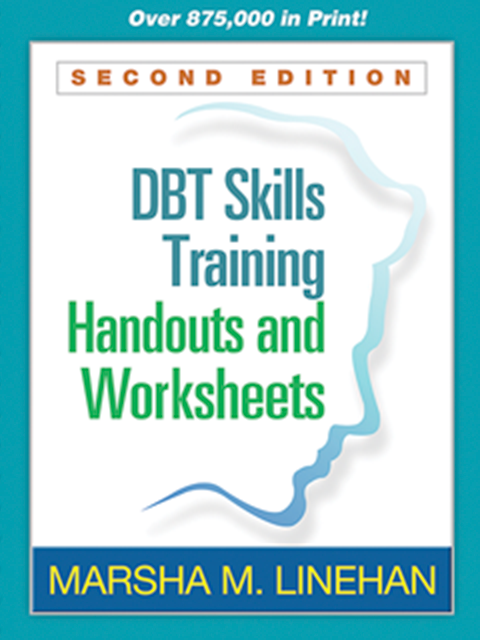 DBT Skills Training Handouts and Worksheets: Second Edition Marsha Linehan's (2015) DBT Skills Training Handouts and Worksheets provides the handouts and worksheets necessary for teaching clients DBT skills.
DBT Skills Training Handouts and Worksheets: Second Edition Marsha Linehan's (2015) DBT Skills Training Handouts and Worksheets provides the handouts and worksheets necessary for teaching clients DBT skills. - DBT Skills Training Manual: Second Edition
- Standard DBT Diary Card
Videos
This section includes recommended video resources about DBT skills.
- DBT Skills Videos
- DBT-RU skills videos (Shireen Rizvi)
Shireen Rizvi and Jesse Finkelstein's DBT-RU videos provide brief descriptions of how to use specific DBT skills with corresponding animations to improve the accessibility of these skills. - DBT Mindfullness Skills Playlist
Books
This section includes recommended books about DBT and components of DBT (e.g., chain analysis).
- Introduction to DBT and Implementing DBT for Providers
-
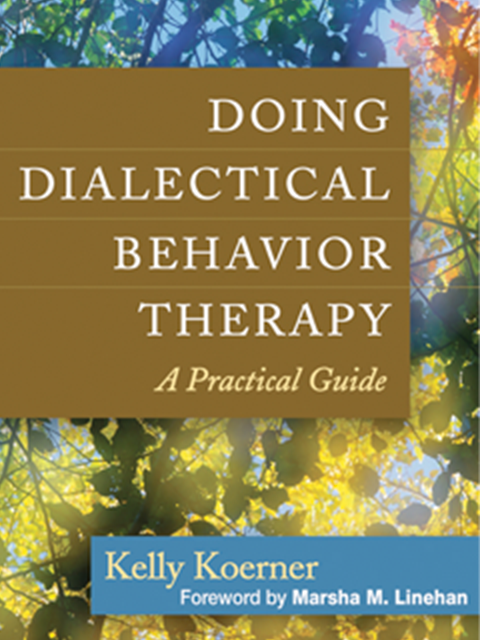 Doing Dialectical Behavior Therapy: A Practical Guide Kelly Koerner's (2011) book Doing DBT: A Practical Guide provides an accessible introduction to DBT with step-by-step descriptions and clinical vignettes to illustrate the application of DBT for clients with histories of suicidal self-directed violence.
Doing Dialectical Behavior Therapy: A Practical Guide Kelly Koerner's (2011) book Doing DBT: A Practical Guide provides an accessible introduction to DBT with step-by-step descriptions and clinical vignettes to illustrate the application of DBT for clients with histories of suicidal self-directed violence. - The Oxford Handbook of DBT
- Implementing Chain Analysis and Case Conceptualization
-
 Chain analysis in Dialectical Behavior Therapy Shireen Rizvi's (2019) book Chain Analysis in Dialectical Behavior Therapy breaks down the process of the behavioral chain analysis in DBT and provides clinical examples demonstrating the application of chain analysis.
Chain analysis in Dialectical Behavior Therapy Shireen Rizvi's (2019) book Chain Analysis in Dialectical Behavior Therapy breaks down the process of the behavioral chain analysis in DBT and provides clinical examples demonstrating the application of chain analysis.
Webinars
This section includes recommended webinars about DBT and components of DBT (e.g., chain analysis).
- Introduction to DBT Webinars
-
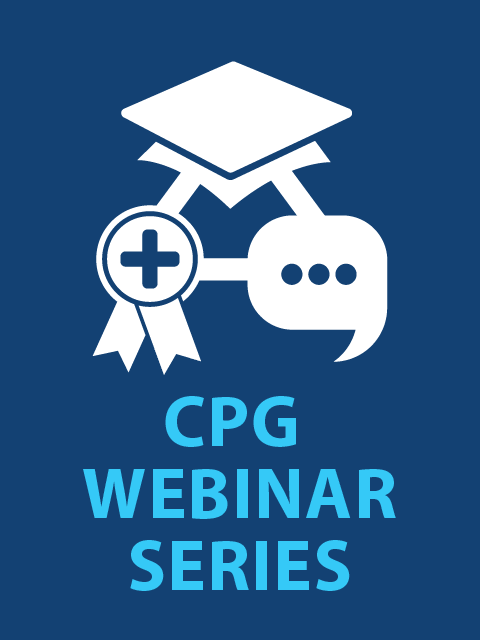 Cultural Considerations in DBT Presented by Dr. Meredith Sears
Cultural Considerations in DBT Presented by Dr. Meredith Sears -
 Dialectical Behavior Therapy via Telehealth Presented by Dr. Sara Landes
Dialectical Behavior Therapy via Telehealth Presented by Dr. Sara Landes -
 An Introduction to Dialectical Behavior Therapy Presented by Dr. Sara Landes, this webinar provides an introduction to DBT ideal for those who are new to DBT and those who are interested in making client referrals to DBT programs.
An Introduction to Dialectical Behavior Therapy Presented by Dr. Sara Landes, this webinar provides an introduction to DBT ideal for those who are new to DBT and those who are interested in making client referrals to DBT programs. -
 Suicide Prevention 2.0 Clinical Telehealth Program Presented by Dr. Jessica A Walker
Suicide Prevention 2.0 Clinical Telehealth Program Presented by Dr. Jessica A Walker -
 Suicide Prevention 2.0 Clinical Telehealth: Implementation of an evidence-based psychotherapy program to reduce suicide behavior in U.S. Veterans Presented by Dr. Jessica A Walker
Suicide Prevention 2.0 Clinical Telehealth: Implementation of an evidence-based psychotherapy program to reduce suicide behavior in U.S. Veterans Presented by Dr. Jessica A Walker  Intro to DBT video from 2011 Conference of the National Educational Alliance for Borderline Personality Disorder Presented by Alan Fruzzetti
Intro to DBT video from 2011 Conference of the National Educational Alliance for Borderline Personality Disorder Presented by Alan Fruzzetti- Webinars Supporting Chain Analysis
-
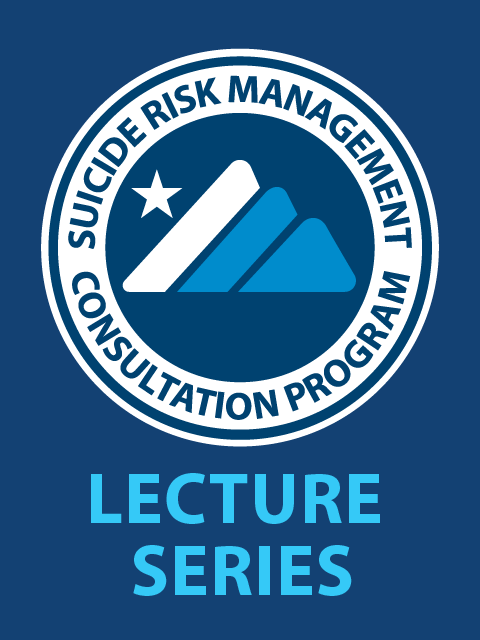 Using Chain Analysis to Assess and Intervene on Suicidal Ideation and Behavior Presented by Drs. Lauren Borges & Sean Barnes
Using Chain Analysis to Assess and Intervene on Suicidal Ideation and Behavior Presented by Drs. Lauren Borges & Sean Barnes
Mobile Applications
This section includes recommended mobile applications about DBT.
Return to Resource OptionsPodcasts
This section includes recommended podcast episodes and series about DBT.
-
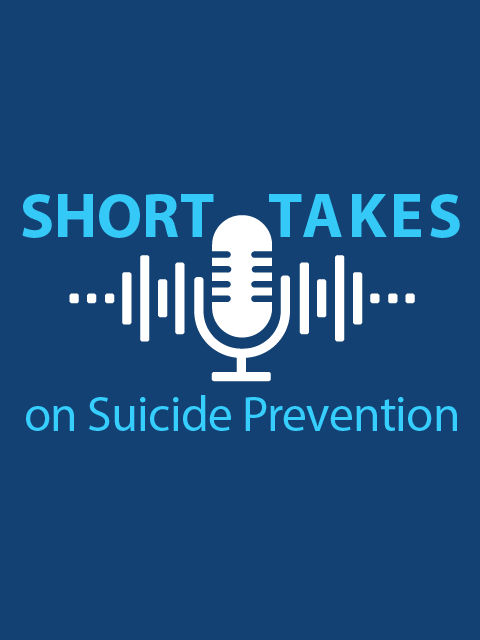 Rocky Mountain Short Takes on Suicide Prevention: Chain Analysis for Suicidal Thoughts and Behaviors In this episode of "Short Takes on Suicide Prevention" Lauren Borges and Sean Barnes highlight the utility of chain analysis as a method of therapeutic risk management of suicidal self-directed violence.
Rocky Mountain Short Takes on Suicide Prevention: Chain Analysis for Suicidal Thoughts and Behaviors In this episode of "Short Takes on Suicide Prevention" Lauren Borges and Sean Barnes highlight the utility of chain analysis as a method of therapeutic risk management of suicidal self-directed violence.  A Podcast with Charlie: To Hell and Back. In Collaboration with National Education Alliance for Borderline Personality Disorder.
A Podcast with Charlie: To Hell and Back. In Collaboration with National Education Alliance for Borderline Personality Disorder.
Articles
This section includes recommended articles about a DBT.
- Implementing DBT Skills
- (2019). Therapeutic risk management: Chain analysis of suicidal ideation and behavior. Journal of Psychiatric Practice, 25(1), 46-53. https://doi.org/10.1097/PRA.0000000000000358
- (2019). Dialectical Behavior Therapy Is Effective for the Treatment of Suicidal Behavior: A Meta-Analysis. Behavior therapy, 50(1). 60–72. https://doi.org/10.1016/j.beth.2018.03.009
- (2020). Interventions for suicide and self-injury: A meta-analysis of randomized controlled trials across nearly 50 years of research. Psychological bulletin, 146(12). 1117–1145. https://doi.org/10.1037/bul0000305
- (2006). Mechanisms of change in dialectal behavior therapy: Theoretical and empirical observations. Journal of Clinical Psychology, 62, 459-480. https://doi.org/10.1002/jclp.20243
- (2014). Mastering the art of chain analysis in dialectical behavior therapy. Cognitive and Behavioral Practice, 21, 335-349. https://doi.org/10.1016/j.cbpra.2013.09.002
- (2020). Assessment driven case formulation and treatment planning in dialectical behavior therapy: Using principles to guide effective treatment. Cognitive and Behavioral Practice, 27(1), 4-14. https://doi.org/10.1016/j.cbpra.2017.06.002
- (2020). Principles of Skills Assessment in DBT. Cognitive and Behavioral Practice, 27(1), 18-29. https://doi.org/10.1016/j.cbpra.2019.05.001
- (2021). Psychosocial interventions for self-harm in adults. The Cochrane database of systematic reviews, 4(4). CD013668. https://doi.org/10.1002/14651858.CD013668.pub2














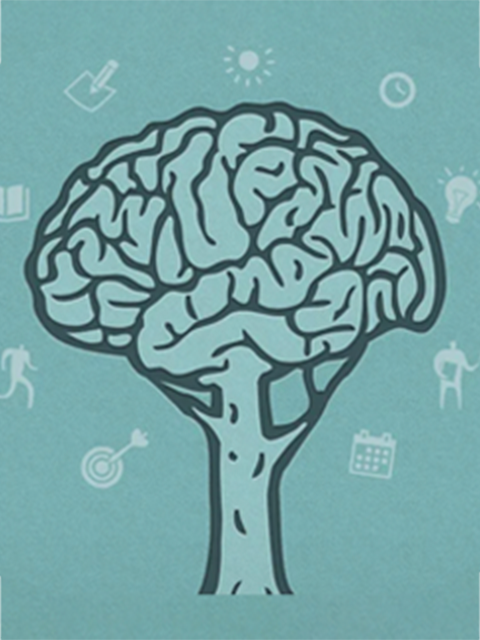 DBT Diary Card & Skills Coach
DBT Diary Card & Skills Coach 





